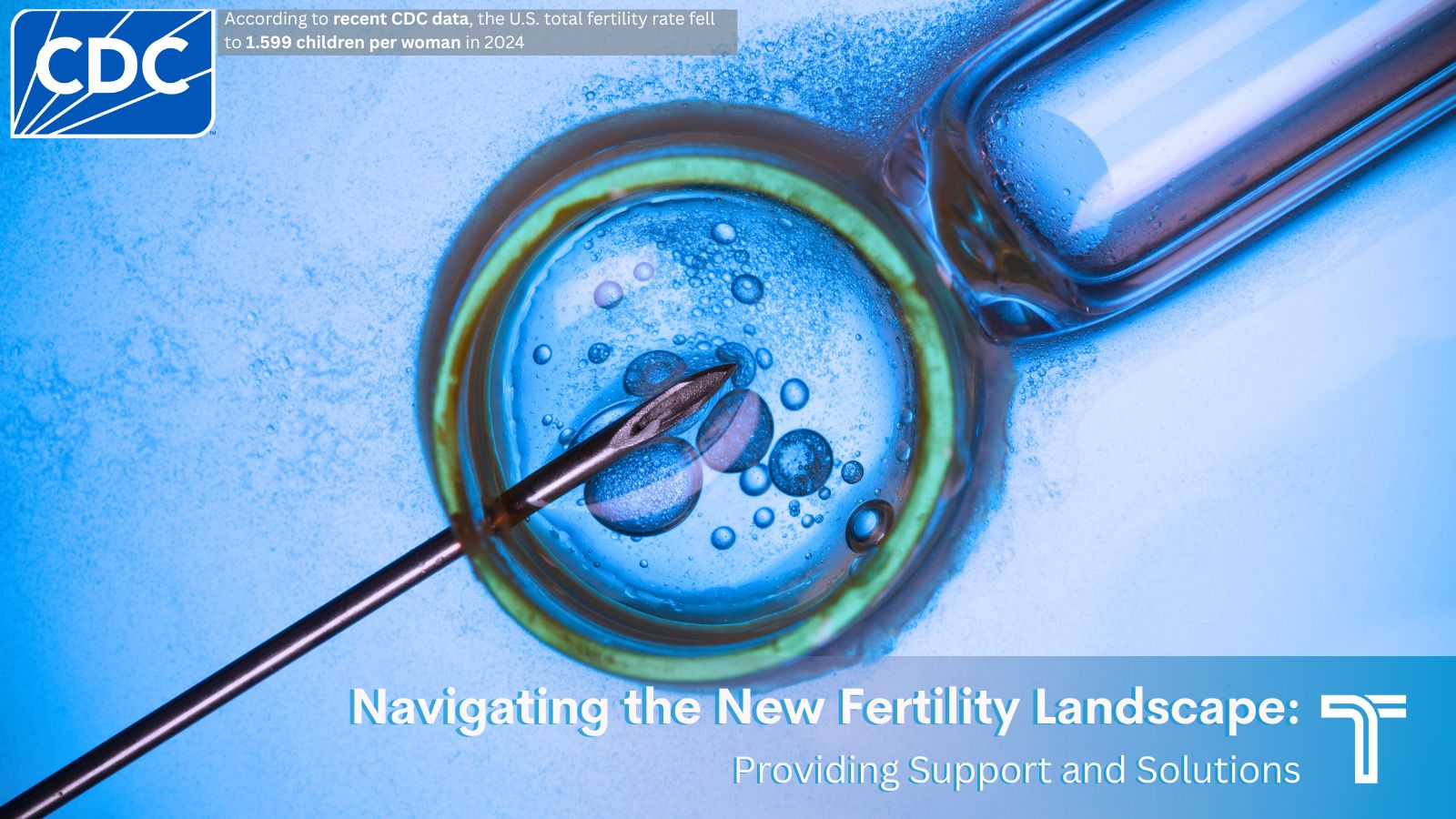According to recent CDC data, the U.S. total fertility rate fell to 1.599 children per woman in 2024—the lowest ever recorded. This continued decline, highlighted in a recent AP News article, reinforces a growing trend: fewer children are being born, and more individuals are seeking help to start a family.
While the total number of births in the U.S. increased slightly (~1%) due to population growth, this uptick contrasts with the long-term trajectory of delayed or difficult conception. The number of women of reproductive age continues to grow, but many are waiting longer to try for pregnancy, often confronting age-related fertility challenges.
Why This Matters to Fertility Clinics
As fertility rates drop and awareness around reproductive health grows, clinics and OB/GYNs are seeing more patients explore assisted reproductive technologies (ART) like IUI and IVF. Here’s what this trend means for today’s fertility practices:
Increased Demand for Reproductive Services
Infertility affects about 1 in 6 adults globally, and in the U.S., more than 13% of women experience impaired fertility. Clinics are not only treating more patients—they’re also expanding the scope of care to include:
-
-
- Earlier diagnostics for younger patients facing PCOS, endometriosis, or hormonal imbalance
-
-
-
- IUI and IVF procedures for couples struggling to conceive naturally
-
-
-
- Services for LGBTQ+ families and single parents pursuing fertility treatment
-
Older Patient Demographics, More Complex Cases
More women are choosing to have children later in life. As a result:
-
-
- Egg quality and ovarian reserve are often diminished, requiring more precise, minimally invasive tools
-
-
-
- Embryo transfer procedures must be exacting, especially with fewer viable embryos
-
-
-
- Clinics need dependable instruments that minimize trauma and maximize efficiency
-
Efficiency and Consistency Are Crucial
With growing patient volume, clinics must streamline procedures and reduce variability. Single-use devices—like those provided by Thomas Medical—help ensure:
-
-
- Consistent performance with each use
-
-
-
- Sterility and reduced cross-contamination risk
-
-
-
- Fewer equipment-related delays or malfunctions during procedures
-
Cost-Conscious and Safety-Focused Patients
Patients paying out-of-pocket for fertility care want assurance that their provider uses safe, high-quality tools. Clinics need to demonstrate that their equipment and practices are aligned with the highest standards—especially when outcomes are on the line.
How Thomas Medical Supports Infertility Care Providers
At Thomas Medical, we understand that fertility care is highly sensitive, precise, and emotionally significant. Our U.S.-manufactured, FDA-registered, ISO 13485–certified devices are trusted by fertility specialists, OB/GYNs, and embryologists across the country.
Key infertility care products include:
🟣 IUI Catheters – Available in shapeable and curved styles, with embedded stylets for controlled, atraumatic insemination
🟣 Embryo Transfer Catheters – Individually inspected for quality, essential for embryo handling in IVF
🟣 HSG/HS Catheters and Procedure Kits – Streamlined for uterine evaluation and tubal patency studies
🟣 Endometrial Samplers – Designed for endometrial tissue collection and diagnostics
🟣 Uterine Manipulators & Injectors – Engineered for uterine positioning and dye delivery in hysterosalpingography or laparoscopy
These single-use, sterile devices help clinics reduce infection risk, maintain regulatory compliance, and optimize patient outcomes—all while improving procedural efficiency.
The Bigger Picture
The CDC’s fertility data is more than a demographic trend—it’s a clinical signal. Fertility clinics are on the front lines of this population shift, offering hope and solutions to individuals and couples facing mounting reproductive challenges.
In a time of declining fertility, rising treatment demand, and evolving patient expectations, having the right tools—reliable, ready-to-use, and designed for precision—can make all the difference.
🔗 Ready to Learn More?
Explore Thomas Medical’s full line of infertility care products at thomasmedical.com or contact us to discuss how we can support your fertility clinic’s success.





